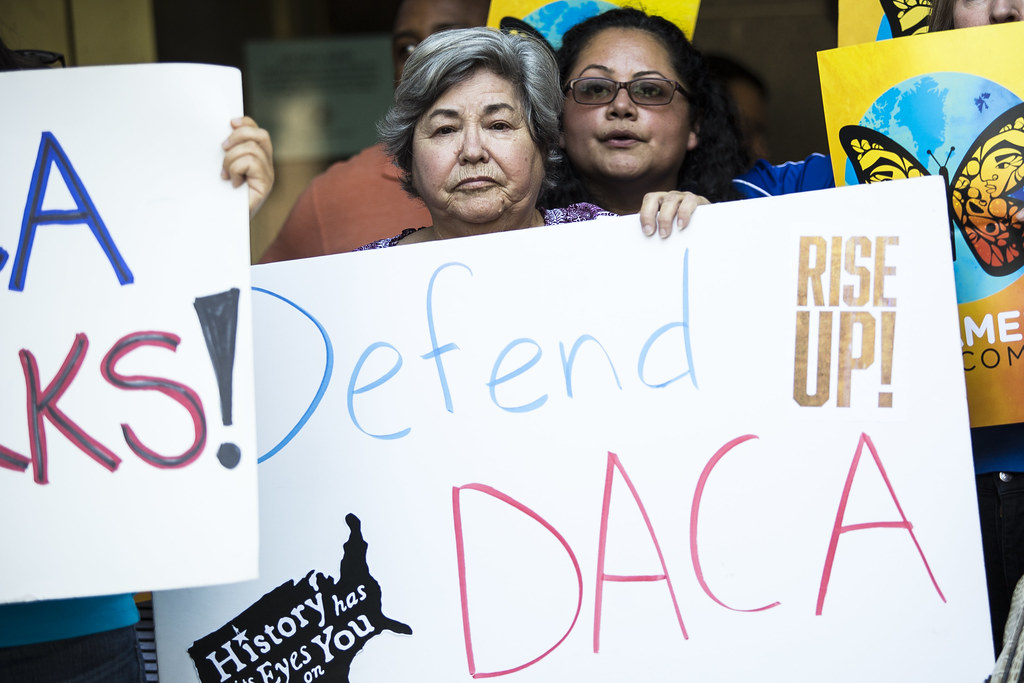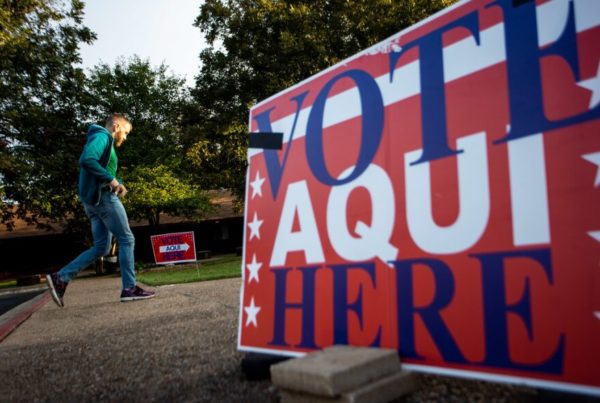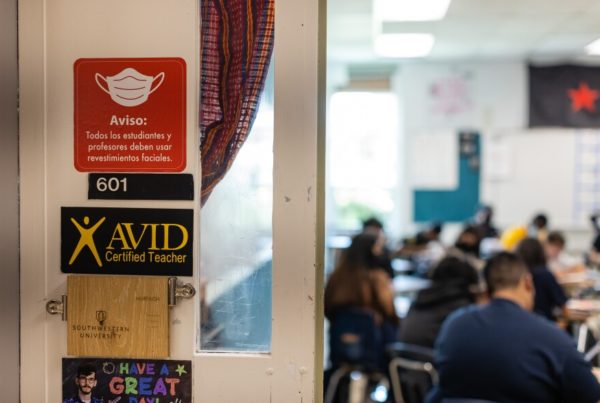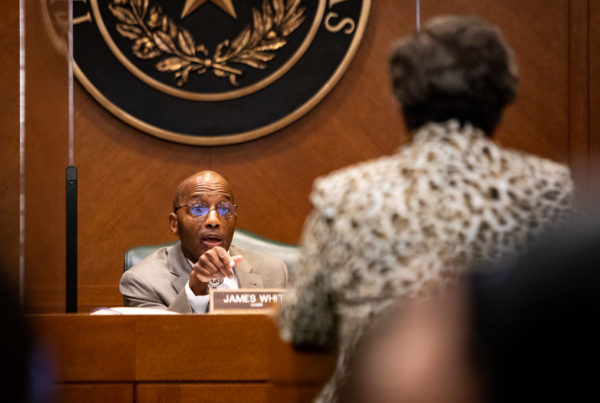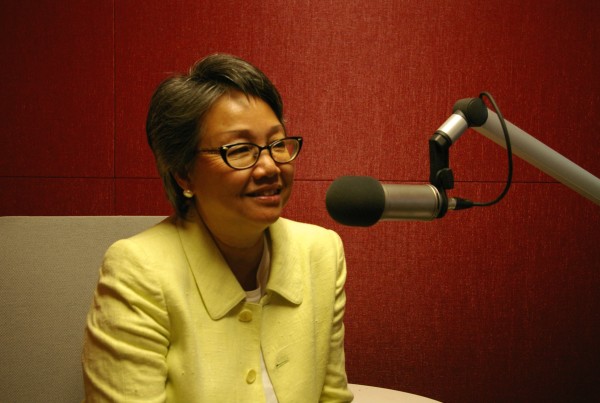It’s been ten years since the Obama administration created DACA – Deferred Action for Childhood Arrivals – a program intended to give migrants who came to this country as children a chance to stay. But legal challenges to the program and inaction in Congress have kept DACA’s beneficiaries in limbo.
Two years after graduating high school in 2011, Jaime was working for his father pouring concrete foundations for homes in Texas. He was saving money to attend college. A dream he’d always wanted to achieve, but didn’t know he could, because of his immigration status.
Jaime’s mother took him to RAICES – a nonprofit organization that provides free and low-cost legal help to immigrant families – to apply for the Deferred Action for Childhood Arrivals or DACA program, which was created by President Barack Obama a year prior.
A few months later, Jaime became a DACA recipient and enrolled at Palo Alto College in San Antonio where he excelled and was awarded multiple academic honors and scholarships.
“My parents got here when they were teenagers and I feel like I’ve done more in the last 10 years since I got DACA, than they have their whole life here,” Jaime said.
DACA has helped over 800,000 undocumented youth, otherwise known as Dreamers, brought to the U.S. as children, to receive benefits like a Social Security card, driver’s license, two-year work permit, and even a college education. Obama initiated DACA as a way to protect Dreamers from deportation, in response to the multiple failed attempts to pass the DREAM Act legislation in the early to mid-2000s.
June 15 marked the 10-year anniversary of the DACA program’s creation in 2012. The program has endured a lot of challenges over the years. DACA’s future remains uncertain as legal challenges continue to persist in states like Texas and Dreamers like Jaime remain in limbo with no permanent solution in sight.
The battle over DACA dates back to June of 2017 when Texas Attorney General Ken Paxton and nine other Republican state officials wrote a letter urging the Trump administration to end DACA after successfully winning a lawsuit to revoke the Deferred Action for Parents of Americans or DAPA, a 2014 program, which would have similarly protected the parents of DACA recipients and U.S. citizens.
Later in 2017, the Trump administration rescinded DACA, which ceased new applications for eligible Dreamers and set off a series of lawsuits to defend DACA recipients, according to MALDEF, a legal voice for Latinos in the U.S. The suits resulted in temporary injunctions to keep DACA alive, but only for renewals.
Jaime completed his undergraduate degree at UT-Austin. He says living in Texas as a Dreamer during the Trump administration was not easy.
“Doing the financial aid was a lot more difficult to do,” Jaime said. “When Obama was still in office, I missed the deadline to renew it, so I redid the whole thing, and it got accepted right away. But then, I did it, four months in advance when Trump was in office, and they rejected it.”
Unlike most students applying for college, Dreamers are ineligible for the federal financial aid program, or FAFSA. But the DACA program allows them to apply for scholarships through TASFA, the state’s financial aid application system for Texas residents.
Pamela Chomba is also a Dreamer, and director of state immigration campaigns at FWD.us, a bipartisan political organization focused on reforming immigration and criminal justice systems. She worked for an electoral campaign in Texas and she said living with DACA in a red state compared to blue states like New Jersey or New York is completely different.
“I think many Texans know the value of the immigrant community, but I think that there are more roadblocks, however, that are placed by institutions that make it harder,” Chomba said.
In 2017, Gov. Greg Abbott signed Senate Bill 4, which allowed Texas law enforcement agencies to question a person’s immigration status, even during routine traffic stops. This concerned Jaime at the time because he was commuting almost an hour and a half from his hometown to UT every day for school and he worried that being pulled over would endanger his or his family’s safety.
Luckily, after making several calls, a person from the Texas Association of Chicanos in Higher Education (TACHE), helped Jaime find a dorm room on campus which he lived in for the rest of his senior year.
“I had originally applied for a dorm, and they told me they were all gone,” Jaime said. “I think it’s because of DACA like they didn’t really want to give me a room, or they were hesitant, but they finally did.”
In 2018, seven states, led by Texas, filed a lawsuit, Texas v. United States, challenging DACA. MALDEF intervened, and 22 DACA recipients testified that they would be inadequately represented by the U.S., given the Trump administration’s public opposition to DACA.
The case shifted in 2020 when President Joe Biden was elected. Biden issued a memorandum ordering the U.S. departments of Justice and Homeland Security to “preserve” and “fortify” DACA. This prompted the Department of Justice to join MALDEF and the state of New Jersey in their fight to save DACA.
On July 6, the Fifth circuit Court of Appeals in New Orleans began hearing arguments over the legality of DACA after a federal judge in Texas ruled the program was unlawful in 2021.
Judge Andrew Hanen ruled in favor of the states that argued Obama overstepped his role by issuing an executive order to create DACA in 2012, and that his administration violated the Administrative Procedure Act (APA). The states also claim Dreamers exacerbated resources like health care and other costs which financially “injured” the states over the years.
Attorneys for DACA recipients are appealing the 2021 ruling by the Texas federal judge. They argue the case has no legal standing and was decided without a trial. Additionally, the states have no evidence of “injury” caused by Dreamers. They argue Dreamers decrease costs throughout the U.S. because many hold jobs with health insurance, own homes and pay taxes that support their communities.
“The term Dreamers for me has evolved,” Chomba said. “It has definitely evolved into a group of people that will continue to fight and it will evolve to a group of people that understand it’s not just about themselves, but it’s also about the people in their communities whether it’s their parents, their aunts or uncles. So, yea I think it’s about being and becoming a fighter.”
The 2021 Texas lawsuit stopped the processing of new DACA applications for more than 1 million eligible Dreamers, and now, only current DACA recipients can renew their applications. DACA renewals cost $500 every two years, plus legal fees that vary per firm.
Alicia Moreno is the program coordinator for the Monarch Center at UT-Austin, an organization that provides support for undocumented students on campus. She said the legal situation has changed the status of many enrolling students.
“Our largest population of undocumented students with DACA were our recent seniors that graduated and also our junior class as well who are rising seniors at this point,” Moreno said. “What I’m seeing is a lot of the prospective students that I’m working with that want to come to UT, a lot of our incoming freshmen, a lot of our current freshmen and sophomores are mostly undocumented students without DACA.”
DACA was supposed to be a stop-gap measure for Dreamers, and in its current form, it does not guarantee a pathway to citizenship. That’s why Austin immigration lawyer Juan Dekruyff says he’s seen a shift, as more DACA recipients opt to become permanent residents.
“The perception among Dreamers now is that DACA is not here to stay necessarily,” Dekruff said. “It could be taken away at any time. So now these kids who were just happy to get a work permit, happy to get a driver’s license. Now they’re like, ‘we need to look forward to how we’re going to stay in residence because getting a work permit isn’t maybe safe enough for us anymore.’”
Jaime just graduated from Columbia University Law School. He wants to be an immigration lawyer and is preparing to take the bar exam soon. Like Chomba, he’s hopeful that DACA’s 10-year anniversary will spark action but he’s also taking steps to protect himself in case of an overturn of the program.
“There has been no congressional action on a law that has always had bipartisan support, and that’s just the lack of political will,” said Elissa Steglich co-director of UT’s immigration law clinic. “It’s very disappointing. Obviously, we must celebrate that DACA in some form is still alive and has withstood incredible challenges under the Trump administration, and it’s hard to be hopeful, but I still have to have it.”
It’s unclear when the Fifth Circuit court will release a decision on the DACA case. But MALDEF says any ruling is likely to be appealed to the Supreme Court. It’s important to note that even if the appeals court rules DACA is unlawful, it won’t necessarily mean an immediate end to DACA, but it will disrupt the lives of hundreds of thousands of Dreamers, their families, employers and communities.


